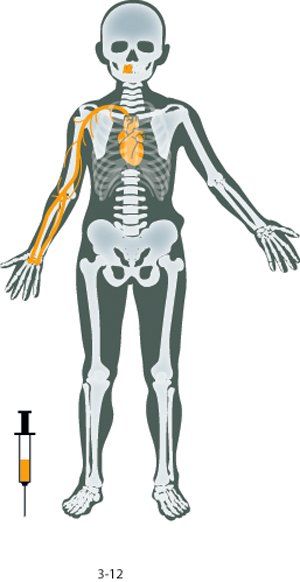
BLOOD PRESSURE
The AAP recommends that blood pressure be checked annually, starting at age 3.
SENSORY SCREENING
The AAP recommends screening vision and hearing by age 4 and annually or every other year after that.
VACCINES
It's important to stay up to date with the vaccines and booster shots recommended by the ACIP. A tetanus, diphtheria, and pertussis shot is recommended at age 11 or 12, along with the meningitis vaccine. The HPV vaccine (three doses) is recommended for 11- to 12-year-old girls. An annual flu shot is also recommended.
ORAL HEALTH
Children should brush their teeth twice a day, floss once a day, and have regular dental checkups (usually every six months). Dentists recommend using fluoride toothpaste (a pea-size amount or less) starting at age 2, an ADA spokesperson says.
SECOND OPINION | OBESITY
First lady Michelle Obama's ambitious new initiative to tackle childhood obesity encourages pediatricians to regularly monitor children's body-mass index (BMI), a ratio of weight and height. The Centers for Disease Control and Prevention and the American Academy of Pediatrics already recommend the practice for children starting at age 2 to help identify weight problems as early as possible. A child whose BMI falls between the 85th and 95th percentile for his age and sex is considered overweight; a BMI at or above the 95th percentile, obese. High BMIs put kids at risk for chronic illnesses, including diabetes and heart disease.

Parents often misclassify their child's weight status. Between the ages of 3 and 8, children naturally tend to slim out, says Dr. Eliana Perrin, an assistant professor of pediatrics at the University of North Carolina at Chapel Hill; some parents mistakenly think they need to be fattened up. At the same time, parents often overlook obesity in older kids. A routine BMI measurement, followed by a consultation with the child's doctor, can raise awareness and help parents provide effective nutritional and exercise strategies for their children immediately.
The practice becomes more controversial when BMI measurements are taken at school. These numbers may be used to track obesity rates among the student population as a whole. But some schools send individual BMI results home. Critics worry that this could stigmatize children or contribute to unhealthy eating patterns that might lead to eating disorders. The CDC says schools that measure BMI should train staff in the program, maintain a "safe and supportive environment for students of all body sizes," and make sure that parents receive a clear and respectful explanation of results and recommendations. No matter where a child's BMI is measured, parents must make sure they understand what the number means and how they can help their child achieve and maintain a healthy weight and lifestyle.
Research by Ian Yarett
Healthy Living: The Complete Package
Uncommon Knowledge
Newsweek is committed to challenging conventional wisdom and finding connections in the search for common ground.
Newsweek is committed to challenging conventional wisdom and finding connections in the search for common ground.





